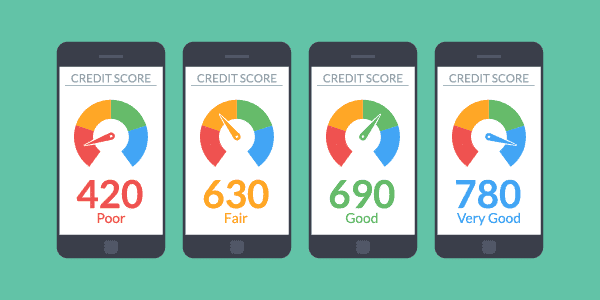Periodically, you check your credit score and credit report. Your latest check left you feeling dejected, as you noticed a credit score drop. Coast Tradelines wants to help you understand the many reasons credit scores take a ding. See if any of these explanations apply to you, so you can understand what happened and develop a strategy to keep it from happening again.
Account Balance Increase
If you used your credit card more than you paid it off in the last few months, the resulting account balance increase could be the answer to the question, “Why did my credit score go down?” The more your overall account balance increases, the more your credit utilization rate increases, which harms your credit score. Use as little of your credit as possible, so you keep your credit utilization rate down, which composes 30% of your credit score.
To gain better control over your credit card account balance and your utilization rate, make a credit card payment before your statement closing date. You can also break payments in two each month, ask for a credit limit increase (but do not use more credit than you usually do) or secure a balance transfer card.
Decreased Average Age of Accounts
If you recently opened a new credit card account, that lowers the average age of your credit accounts. Your credit age makes up 15% of your credit score while your credit payment history compiles 35%, for a total of half of your credit score. The longer you keep a credit card account open, the more it benefits your credit score. Opening a new account negatively affects your score, but the scales balance out the longer the new account remains open.
A New Loan
Loans can help your overall financial health, but they may drive down your credit score. Taking on a loan decreases your average age of accounts, and you likely endured a hard credit inquiry before the lender offered you a loan. Hard credit inquiries hurt your credit score, potentially by five points. Additionally, consumers with new credit represent risky borrowers for lenders, which may also drive down a credit score.
Denied Credit Application
Rather than approval for a loan or credit card, perhaps you received a denial. After running a hard credit inquiry, the lender may return with bad news that you do not qualify for a loan. Or, while you received a positive response for your application, you may not like the loan or credit card terms, which means you could walk away from the offer. No matter the outcome, you still endure a hard credit inquiry. To minimize the fallout of a denied credit application or rejected credit terms, limit the number of times you apply for a loan or credit card every year.
Missed Payments
Touching back on payment history and your credit score, if you do not pay a loan or credit card payment, after 30 days, your credit score dips. Beyond the 30-day penalty, there is also a 60-day penalty, which erodes your credit score even worse than the 30-day penalty.
30- and 60-day penalties are minor derogatory credit report items, while 90-day penalties are major derogatory credit items, which are the absolute worst of the worst. Do everything in your power to avoid major derogatory credit items, which also include foreclosures, charge-offs, settlements and collections. If you have a major derogatory item on your report when applying for a loan or credit card, you have a high chance of receiving a denial.
Credit Card Account Closure
Before you close a credit card account that you do not use anymore, think about how doing so affects your credit score. Depending on how long you had that account, closing it could reduce the average age of your credit card accounts, dropping your credit score. Also, closing an unused account increases your overall credit utilization rate, which impacts your credit score. You are better off leaving an unused account open. That said, you may still pay an annual fee for leaving the account open, so decide if paying the fee every year is worth the credit score boost.
Fraudulent Activity
Unfortunately, you absorb the negative effects of any fraudulent activity on your credit card. Criminals may gain access to your credit cards, driving up your balances and credit utilization rate. Review your credit card statements every month for fraudulent activity that you do not recognize. Even if fraudulent charges drive your credit score down, you can contact your credit card issuer to report the activity to reverse the transactions. While your credit score takes a hit, you are not liable for any charges you did not make.
Use the above information to keep your credit score from decreasing a point more than necessary. For more insights and tips on boosting your credit score, contact us here at Coast Tradelines.


